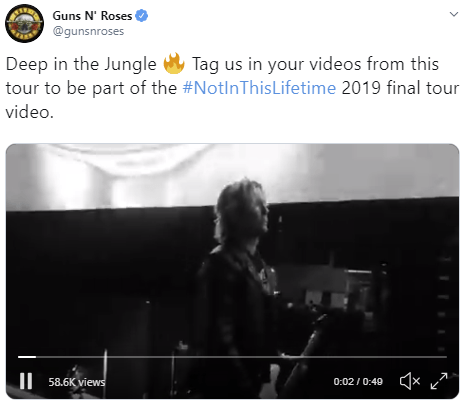For those old enough to remember, the early days of what would become mainstream Internet piracy were an enlightening time to be around.
With few, if any, legal alternatives available, sharing music and later movies online offered an early and exciting glimpse into the future of media consumption.
The entertainment industries hated all kinds of piracy back then and they still hate it now, that’s not up for debate. But today, almost 20 years after peer-to-peer burst onto the scene, there’s mixed opinion even among pirates as to whether things have changed for the better.
TorrentFreak recently caught up with the former operator of a BitTorrent tracker that launched to the public in 2005. The site itself shut down before 2010, ostensibly after its operators decided family life was more important. Its founder tells us that was only part of the story – money was the real issue.
“When we got into this we started a quiet private club where people could share (and I do mean SHARE) stuff with each other,” he explains.
“The staff and members were squirrels gathering up nuts and whatnot and sharing them on the tracker. All of us could snatch what we wanted and didn’t even feel obliged to return the favor but we all did because we knew each other already and it just worked. Guess giving felt good as getting.”
With a few thousand members at its peak, the site was intentionally never big. Hosted on a free shared server with two other sites thanks to a friendly website designer, the limitations were in place right from the start. Unfortunately, the site’s users became restless. Other trackers were bigger, faster, easier to seed on, but more crucially had a wider range of content.
“Can’t tell you when precisely (a few years later) but we started to tear ourselves apart. Some of the best uploaders found other sites and drifted off which had a big effect on the rest of the site. We managed to find a couple of people who were willing to upload but they wanted new stuff in return and we didn’t have it.
“Someone with access to a pay dump offered to help but they wanted paying as well and I noped right out of paying for warez. Most of our rivals did and it hurt us.”
Even when the site got fresh content, that didn’t really help things either, the former admin says. Users with access to other sites uploaded the content on those immediately and some members didn’t like it and wanted it stopped. That didn’t sit right with the admin because behind the scenes his people were doing exactly the same. What they really needed was money to improve the site to get more people in, who would hopefully bring content with them.
“We stuck out for years not asking for donations but at the end of the day we were in limbo. You build this thing and you’re watching it die. There’s still no question in my mind that we should’ve let it die gracefully in its sleep but hindsight and all that.”
The donations helped for a while but the former admin says that things were never the same. He says that most of the time the amount coming in exceeded the running costs of the site which then made it “morally hard” to keep asking for money. However, he said donations were still requested regularly because when people got out of the habit of giving, they were hard to get back, especially when other sites were offering bang for their buck.
“Pay to leech. That was the beginning of the end for me and I still get emotional about it now. To keep up with [site names redacted] we had to boost [sharing] ratios. It was wrong. We’d gone from a family affair to barely more than a pay site. The older members felt they didn’t know us anymore but the newer ones seemed to want it and cultures clashed and I got the blame.”
So-called ‘pay-to-leech’ is a term most often used to explain how a torrent site can raise revenue by manipulating sharing ratios. If a site has enough seeders and excess upload bandwidth, users can pay to be exempted from strict sharing rules. While rules on various sites differ, in general terms it means that members can download content with relative impunity without giving back, i.e not sharing.
The former admin didn’t want to go into detail about what happened in the wake of the decision to start accepting donations but things didn’t go well. What he did reveal is that it changed the mood on the site. In exchange for their money, people flat-out demanded better service and became more and more vocal when they didn’t get it. They felt they’d paid for a service.
“We had angry posts in the forums with people pasting details of their donations and even private conversations about them with the moderators. I had my wee baby crying downstairs, a pissed-off girlfriend who I never saw and man babies crying on the site over a pittance. I took it and took it and took it and then one day a five minute chat on IRC later with another admin and i’d gone. ‘Here’s the keys to the frontdoor.’ Best thing i’d ever done.”
The striking thing about our discussion with the former admin is that he says that while arguments are commonplace on the Internet these days, they were the exception when his site was first launched. He says there was a sense of belonging to something special and people didn’t want to spoil it because they were not only part of it, they’d helped to create and maintain it too. These days, he complains, things are different because ‘sharing and caring’ have been forgotten.
“Is there a file-sharing family anymore because if there is I don’t know where to find them. People still share alright but it’s pictures of them or their food on Facebook and Instagram. You can’t find people sharing files for fun as we did back in the day because the cat’s out of the bag and it’s an earner and you can’t turn back the clock. Why do you think all the kids dumped torrents for upload sites unless it was about the payback?
“I don’t know if it’s me that’s stuck in the past and this had to happen for piracy to exist as it does now but it’s a shame because all I see now is greed. You tell me, but is sharing out of kindness almost dead?” he asked.
With an entirely different experience, millions of users and uploaders to The Pirate Bay and similar sites would probably beg to differ.
After more than 15 years online, people are still uploading content as they did in the early days, each with their own reason for doing so. The site is still widely accessible and people can take whatever they like for free. The site obviously makes money though, using ads and a crypto-miner, so money remains part of the loop.
More elitist and/or discerning users will always point to professionally organized private trackers as being more community-based, more reliable, much better organized, and with greater emphasis placed on quality control. Old-style sharing can still be found on many but they are certainly not immune to change and the pressures of commerce.
Invites, when they become available, are sometimes handed out for free but in an increasing number of cases, sites charge for the privilege. One can’t make sweeping statements about all of them because there are many and they’re secretive. However, there can be no doubt that a significant number have developed into money-making machines, both for their operators and in some cases their uploaders too.
That raises the question: is there any way to turn back the clock? Is there a way to remove money or other financial incentives out of the equation? With streaming, the most popular form of piracy currently, apparently not.
“You are not realistic,” the operator of a streaming site told TF.
“You write it every day that someone is arrested or blocked or PayPal closed. I can do this for nothing then. Nobody is doing this for nothing. Servers are free so show me where I can buy?”
The owner of a smaller public torrent site (who has operated several other piracy-focused sites in the past) was more talkative.
“My motivation is purely money related. I would not run any piracy related sites if they didn’t earn anything. Just too much risk involved,” he explained.
“Personal issues left me to rely on income from the sites to support my family. I would simply not run the sites if they didn’t make anything. Making money from piracy is so easy so that’s why I think people do it. Rarely you’ll see a site not using any ads. When I was younger things felt a lot different to what they do now. They don’t do it for the love now. But for the money.”
We posed similar questions to a long-standing major site operator – what motivates people to run torrent, hosting and streaming sites these days? He told us that the latter pair make “lots of money” but in respect of torrent sites, he believes there’s no point in running one anymore. The only exception would be for small sites that might still operate for ‘fun’ or on a break-even basis.
“[Some people might run] some small ones [for no profit] – sure – but the user base will be small because the time spent on development will be low,” he said.
For anyone running a bigger site, making nothing or even breaking even isn’t a realistic option, he added. Costs increase every month and if you don’t keep balancing the books, “it won’t work out.”
Ultimately, the operator insisted that going completely back to old-style “sharing is caring” won’t be possible. There’s a new type of demanding consumer out there that is very difficult and increasingly expensive to keep happy.
“That’s never going to happen. The Netflix generation is used to content ready to use, they don’t think about what’s involved in the process of reaching them.”
Tim Kuik of Dutch anti-piracy group BREIN says that he hasn’t seen platforms that aren’t in it for the money for a long time.
“Even if there are uploaders or subtitlers who do it for the kudos, the platforms they post on are making money out of it. We see illegal link aggregators that are supported by platforms that make money off downloaders or streamers by selling them higher download speed,” he says.
But for anti-piracy groups like BREIN, motivation probably doesn’t make much difference to the end result. Piracy is piracy and whatever drives it, it still means illegal content ends up online for free.
“Even if it were for a hobby, would that make it alright to cause damage with it?” Kuik asks.
But ultimately, in the final reckoning, do today’s consumers of pirated content even care what goes on behind the scenes financially, as long as they get it free or at least on the cheap?
One can’t put words into the mouths of millions of individuals but given the popularity of online piracy, especially the astronomic growth of premium IPTV, the suggestion is that largely, people don’t. In fact, for newer entrants to the piracy scene, the fact that people make money is probably the accepted standard.
Source: TF, for the latest info on copyright, file-sharing, torrent sites and more. We also have VPN reviews, discounts, offers and coupons.







